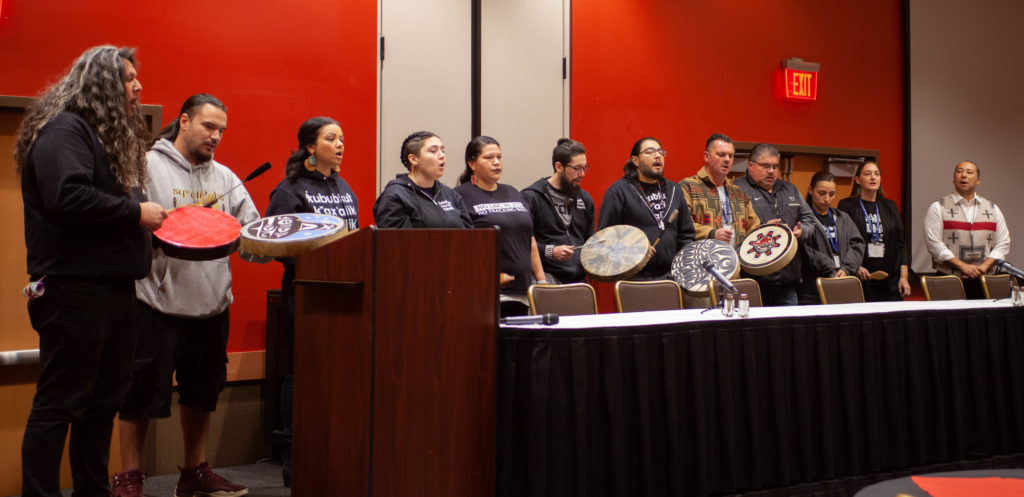
By Lisa Pemberton, Puyallup Tribal News staff writer
The fight against Tacoma LNG isn’t over, and it won’t be done alone.
Those were just two of the takeaways from the Affiliated Tribes of Northwest Indians’ summit about environmental, legal and safety issues associated with Puget Sound Energy’s proposed liquefied natural gas plant at the Port of Tacoma.
Lummi Nation chairman Jay Julius said his tribe stands behind the Puyallup Tribe of Indians in its fight against the facility, which is already under construction.
“Anything we can do to help, we are here for you,” he said during the Oct. 29-30 event.
Puget Sound Energy officials say the LNG plant will bring jobs to the area, improve local air quality and reduce the chance of oil spill in the Puget Sound. However, opponents, including the Puyallup Tribe, say the project is dangerous to Puget Sound’s waterways and surrounding neighborhoods, is taking place without adequate tribal consultation and that its environment impacts ultimately threaten treaty rights.
“Typically you would not see these facilities in urbanized areas,” said Tarika Powell, a senior research associate with the Sightline Institute, an independent research and communications nonprofit.
A determination from the Puget Sound Clean Air Agency on whether to issue or deny a construction permit is expected soon.
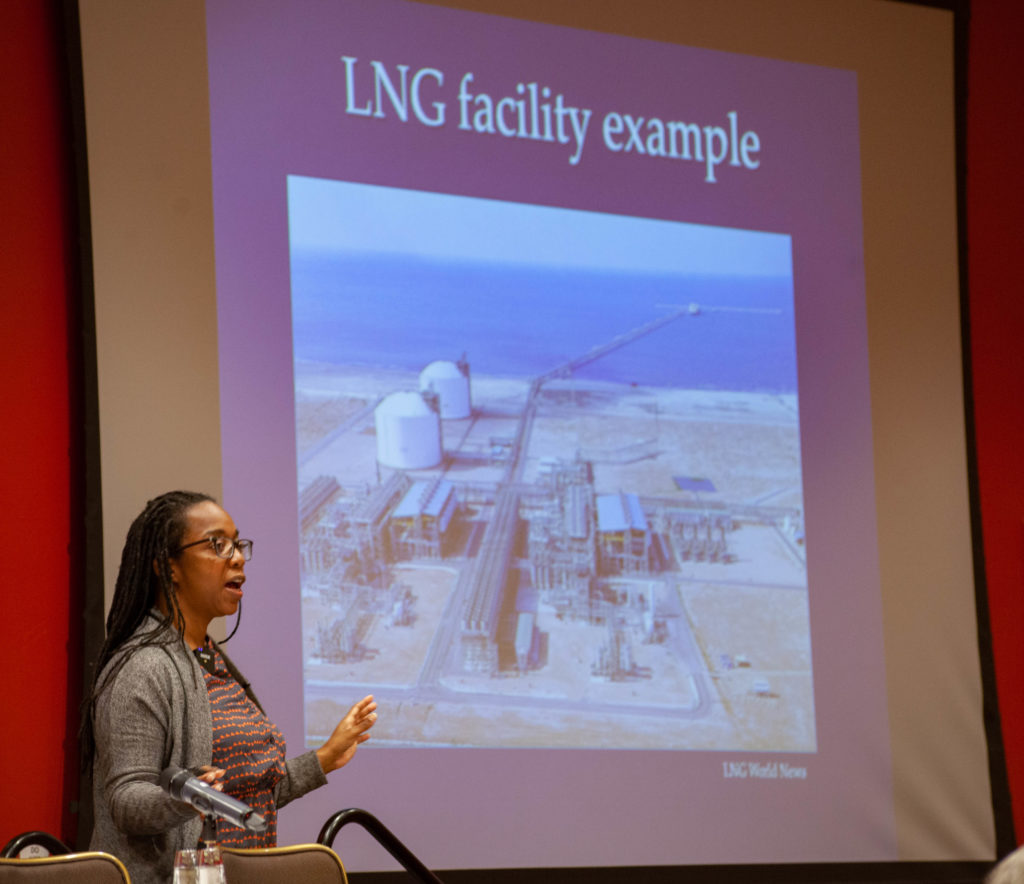
Tarika Powell, Sightline Institute senior research associate
During the summit, Puyallup Tribal Council members Annette Bryan and Anna Bean gave an overview of the tribe’s investment in fisheries, education, restoration of the Lushootseed language, its culture, land, housing and community. Their point: all of that work is at risk of being lost, if the Tacoma LNG plant is allowed to begin operations.
“We know that this could have devastating impacts,” Bryan said.
The tribe publicly came out against the Tacoma LNG in 2016. Bean said the tribe has received support for its fight against Tacoma LNG from 19 tribes, ATNI, the National Congress of American Indians (NCAI), the Seattle City Council and 18 other organizations.
“The Puyallup Tribe has always fought,” she said. “This is what our people have always done, for as long as we remember.”
What’s at stake
The summit included a half-day tour of tribal properties, enterprises and cultural sites that are within an area opponents say are at risk in a catastrophe. The tour stops included:
- The Place of Circling Waters, 1621 Marine View Drive, featuring a presentation on how the tribe is working to make the Hylebos waterway functional for fish habitat.
- The Chinook Marina, 3702 Marine View Drive No. 200, with information on how the tribe is seeking economic development ventures.
- Northeast Housing, 6245 21st St. NE, where the tribe is providing affordable housing for its members.
- Canoe Journey landing site, 4224 Marine View Dr., with a presentation on how the tribe is working to reclaim lands and revitalize culture.
- The Riverboat/Blair waterway property, 2102 Alexander Ave., which is an industrial economic development property and used for members for Firecracker Alley.
“I learned so much,” said Joel Moffett, who is the Natural Resources Policy Coordinator with ATNI. “A lot of it opened my eyes to aspects I didn’t even think about.”
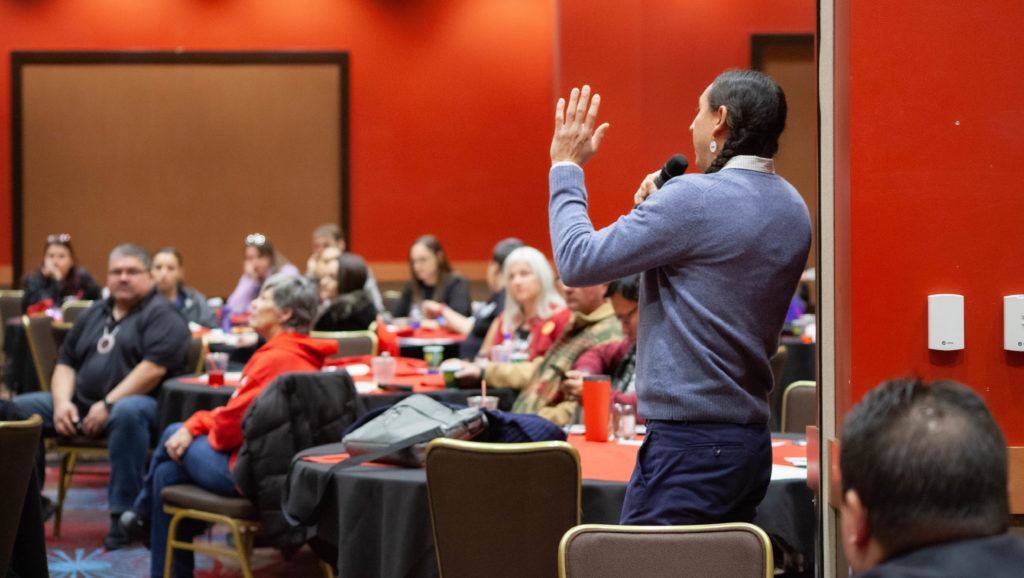
Puget Sound Energy rejects claims of a so-called “blast zone,” and states that the plant designed is designed per federal regulations to contain all leaks, spills, fires and explosions on the 33-acre site.
Former Puyallup Tribal chairwoman Ramona Bennett disputes the utility’s claim, and encourages tribal members to do their own research and learn about the dangers of the proposed LNG plant.
“It will leak, it will burn, it will explode, and it will stink – it’s gas,” Bennett said. “All our tribal members need to do is go online and Google ‘gas accidents,’ and they will see whole communities blowing up. And if that 8 million gallons go, they can kiss their blue (per capita) checks goodbye because both casinos would be blown up.”
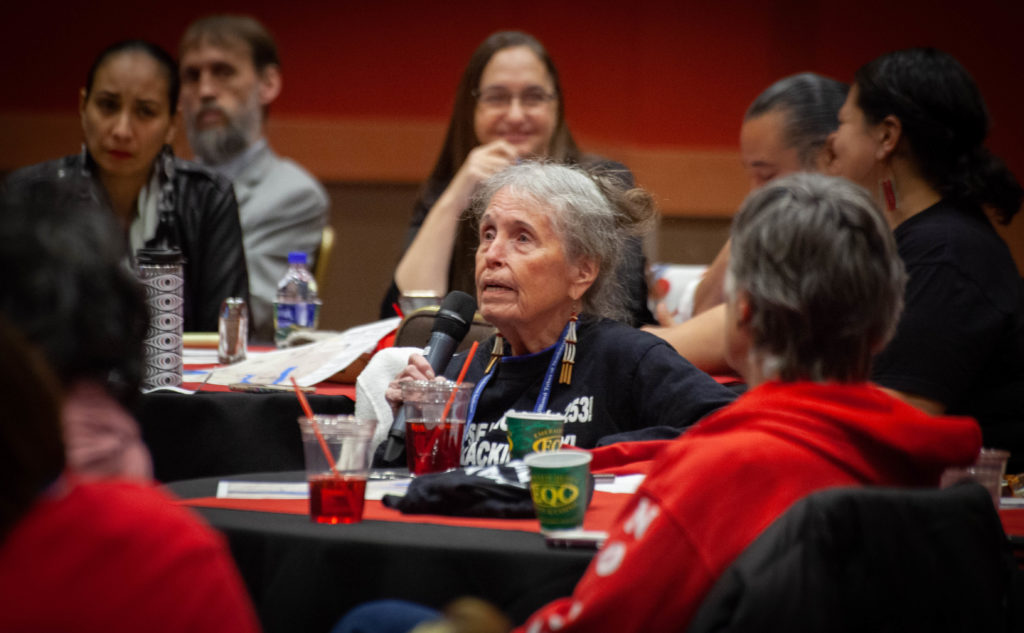
Information sharing
On the second day of the summit, Julius shared how the Lummi Nation won a multi-year battle against a proposed coal terminal at Cherry Point, an ancestral village site.
His recommendations: Create detailed documentation of any treaty rights that will be affected, identify and confront the project’s financial backers, build strong partnerships with other tribes and organizations and don’t give up.
“The call to action is, how can we help?” Julius said. “We’ve been here. We’ve done this. We are so much stronger together.”
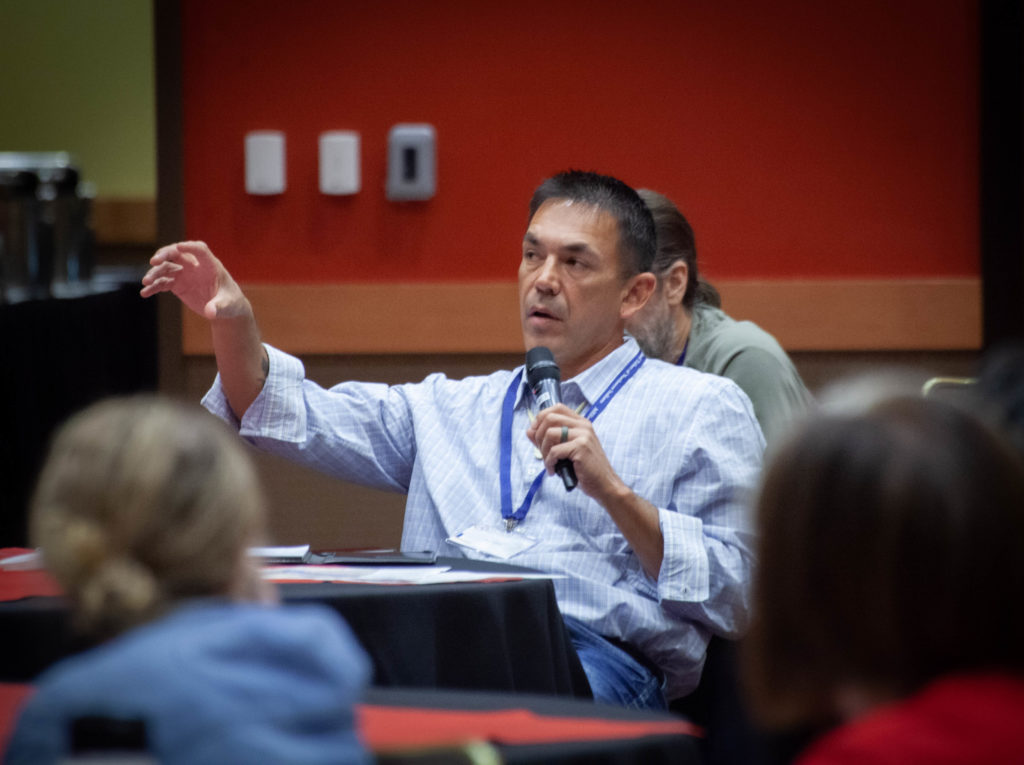
Charles Woodward of the University of Oregon School of Law’s Native Environmental Sovereignty Project said other tribes and organizations have delayed or stopped similar projects by getting permits rejected. Most projects require about a dozen permits, and it only takes one denial to stop a project, he said.
Construction on the $310 million Tacoma LNG plant began in late 2016, with the expectation that the facility would be completed and operational by late 2020, according to Puget Sound Energy.
How can construction occur before all of the permits are issued?
“Construction is underway on non-emitting portions of the facility only,” PSE spokeswoman Janet Kim told the Puyallup Tribal News. “Work to install conversion equipment won’t begin until the final permit is issued.”
Uniting allies
Newly elected NCAI president Fawn Sharp urged attendees to continue fighting big oil and gas companies.
“They are targeting Indian Country all over,” she said, adding that her tribe, the Quinault Indian Nation, is in its own battle against a crude oil shipments in Grays Harbor.
Besides tribal representatives, numerous other allies in the fight against Tacoma LNG attended the summit.
“It’s about our treaty rights,” Patricia Gonzalez, a Puyallup Tribal member and Water Warriors activist, told summit participants. “It’s about our Native people.”
“It’s the urgency of protecting Mother Earth that we all find necessary to do this work,” added Dakota Case, a Puyallup Tribal member and Water Warrior activist.
Victoria Leistman, an organizing representative for the Sierra Club’s Dirty Fuels campaign, described the summit as a “meeting of the minds.”
“It’s really powerful when they bring everyone involved in this fight together,” she said.
Puyallup Tribal member Sarah Rizer, also of the Water Warrior movement, said she enjoyed hearing about other tribes’ experiences, especially the Lummi’s success in shutting down a proposed coal terminal.
“Momentum is the key,” she told the Puyallup Tribal News. “We have these events and it is important that we follow it up with another event, and another event— we do not let months go in between. …Let’s get the work done.”
Photos by Puyallup Tribal member Jennifer Squally.




